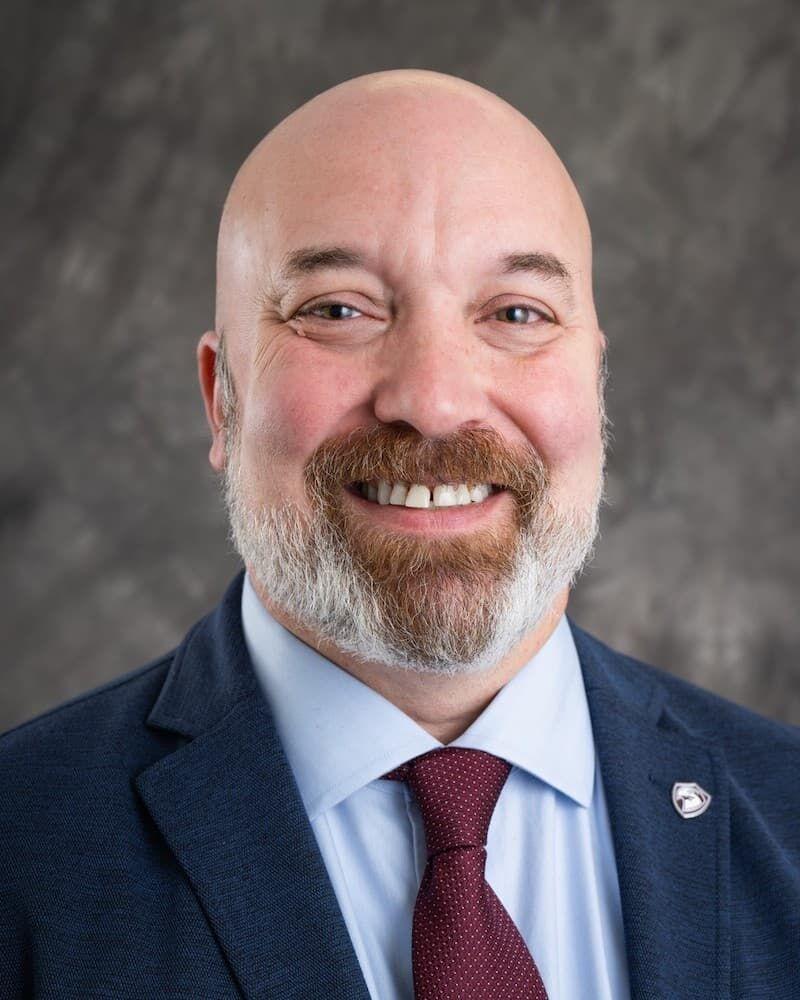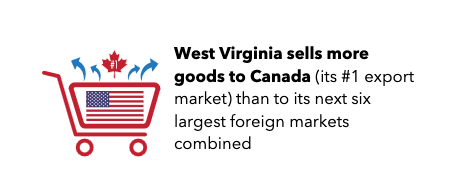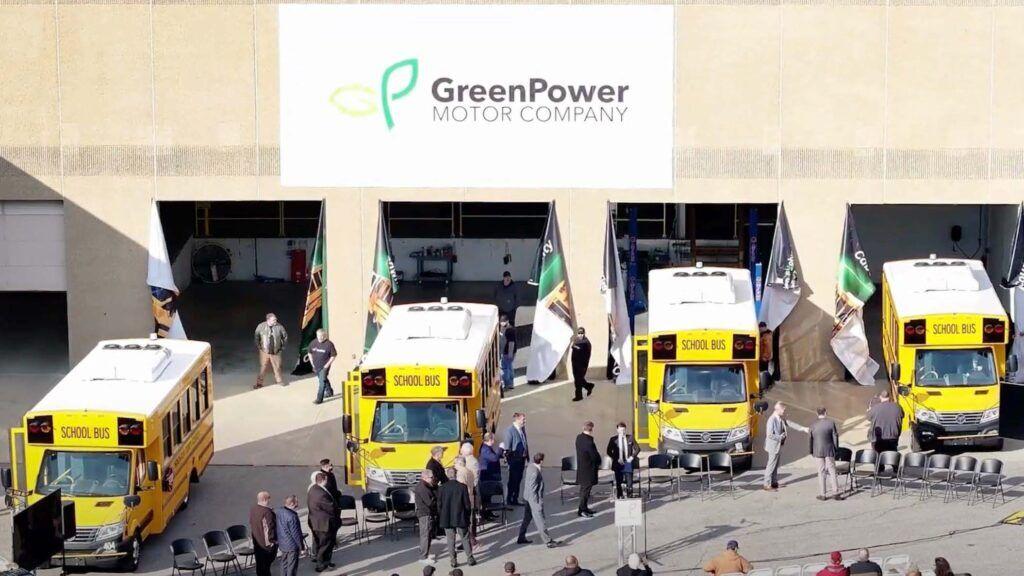

CLARKSBURG, W.Va. (WV News) — The 65th annual Holly Ball, which raised funds for WVU Medicine United Hospital Center’s “Greatest Need Fund,” took place Saturday evening at The Morris in the Glen Elk neighborhood, drawing nearly 500 attendees dressed in disco-themed attire.
Laura Edgell, UHC director of development, emphasized the significance of the event, explaining that the “Greatest Need Fund” was established during the COVID-19 pandemic to address unexpected costs and support patient and staff needs.
Dr. Mark Povroznik, serving as the event’s emcee for the 10th consecutive year, expressed optimism about exceeding six-figure fundraising goal.
“This is a fun event, and we hope to raise as much as we can,” he said, noting a possible connection between the disco theme and the merger of St. Mary’s and Union Protestant hospitals in Clarksburg in the 1970s.
Upon entering The Morris, attendees were transported to the mid-’70s with disco decor adorning the venue.
A designated playroom on the first floor offered a variety of entertainment options, including 360-degree selfies, board games, a screening of the original “Saturday Night Fever,” Pop Rocks candy and a cash bar serving adult beverages.
The appetizer selection featured miniature pepperoni rolls, savory meatballs and a grazing board with assorted cheeses, vegetables, fresh fruit, crackers and dips.
Dinner, catered by Fish Hawk Acres of Buckhannon, included a signature garden salad, Tuscan chicken in a creamy spinach Parmesan sauce, petite tenderloin, roasted potatoes, oven-roasted tomatoes, whipped potatoes, green beans and country dinner rolls.
Having first participated in the Holly Ball as a high school student in 1984, Povroznik reflected on the importance of youth involvement in community service. More than 30 volunteers from Bridgeport High School contributed to the this year’s event, continuing the tradition of engaging young people in meaningful roles.
The Holly Ball remains a cherished tradition in the community, bringing together supporters to celebrate and contribute to a vital cause.
CLARKSBURG, W.Va. (WV News) — During their meeting Wednesday, Harrison County commissioners might hold four executive sessions on extending the tax increment financing agreement at the Charles Pointe development district in Bridgeport.
Commissioners approved the extension last summer, but restructuring the development’s bonds is still ongoing.
“When they restructure these bonds — if they get that accomplished — they want to make sure they’re still tax-exempt,” said Commissioner David Hinkle.
Because the TIF agreement for Charles Pointe has been extended, bonds can be restructured to extend their maturity date, which lowers annual payments.
TIF agreements allow a developer to keep property tax revenues that would normally be paid to the county, then use that money to pay for bonds to finance development.
The county currently contracts Tom Aman of Steptoe & Johnson for counseling on TIF agreement matters.
An additional contract has been drawn up to potentially hire an attorney from Ballard Spahr LLP to assist in restructuring the Charles Pointe bonds.
“It appears we need someone who is an expert in taxes,” Commission President Susan Thomas said.
After applying a 10% discount, Ballard Spahr’s services would cost the county $922 per hour.
“It’s starting to get very expensive for the county,” Hinkle said.
Whether or not the county should keep Steptoe & Johnson engaged in the project is “something we’ll have to discuss,” Thomas said.
Ballard Spahr’s fees will be paid from the commission’s general fund until the trustee of the district’s bond issues agrees to pay the fees or until Charles Pointe’s bonds are restructured, according to the engagement letter.
“We are hiring somebody for bonds that we don’t even know (will) ever be resold or if he’ll be able to make them non-taxable. And the taxpayers are taking on that debt,” Hinkle said.
After postponing consideration at their Jan. 15 meeting due to procedural issues, commissioners will now consider applying for relief from erroneous assessment of community enhancement district (CED) assessments from tax years 2017 through 2022.
In 2022, WV News reported that forbore CED assessments at Charles Pointe totaled $10.3 million for tax years 2017 through 2021.
If CED assessments kept the same pace, the total amount the county may seek relief for would total more than $12 million. But Harrison County commissioners did not offer the exact figure owed to the county — at the recommendation of their attorney.
Commissioners approved forbearance of the assessments to give Charles Pointe’s developer, Genesis Partners, additional funds to establish more tax-revenue-generating businesses to pay down the bonds by which the development was financed.
At a public hearing on the extension of Charles Pointe’s tax increment financing agreement last July, Bridgeport Mayor Andy Lang, who opposed the extension that ultimately passed, said Charles Pointe was delinquent on about $93 million in bond payments, including interest.
Prior to July’s public hearing, the commission signed a letter in support of Genesis Partners, requesting bondholders release deeds of trust and waive CED assessments on a parcel of land that includes the proposed construction site of the Mon Health Harrison Neighborhood Hospital.
The concessions requested are part of a larger overall agreement tied to restructuring the bonds on the property, Aman has said.
The commission’s letter of support said the concessions were also necessary for construction of the hospital to begin in a timely manner.
In December, construction of the hospital was delayed due to the issues, Mon Health President and CEO David Goldberg confirmed.
“Time is of the essence,” the letter warned.
“We want to be at Charles Pointe. But if they can’t solve their issues, we will find an alternative site,” Goldberg said in December.
Also Wednesday, commissioners will:
— Consider putting several projects relating to the Harrison County Courthouse out to bid.
These projects include replacing the elevators, conducting a space use study and demolishing the jail annex which houses the magistrate courts.
These projects were considered by the commissioners last September, but they were not approved.
Hinkle said he has put the projects back on the agenda because he has had a change of mind and now believes that continually repairing the jail annex will be more costly than demolishing it and bringing its tenants into the courthouse proper.
Thomas said she supported putting the jail annex demolition and courthouse usage study on hold because there were too many other projects on the commission’s agenda that demanded attention, including ongoing issues at the Harrison County General Services Annex.
“I think we need to continue what we started, unless it would be a life-threatening situation,” she said.
— Hear updates on eight projects relating to the Harrison County Rail Trail, including a project master plan.
— Discuss seeking bids for a master study for the site of the Sunset Ellis Drive-In, which the county bought following a fire that prompted the proprietors to shutter the business last September.
Commissioners will also consider seeking bids on the construction of an upgraded Harrison County Animal Control Facility and a livestock barn to be used by the Harrison County Livestock Association, 4-H and other agriculture groups.
Both of those projects have been proposed for the Sunset Ellis property.
FAIRMONT, W.Va. (WV News) — Fairmont State University announced its new Access Scholarship on Monday, a program that will provide new full-time, in-state students with free tuition if their family income is below $70,000.
Fairmont State President Dr. Mike Davis told WV News that the scholarship was put in place to make higher education more attainable for West Virginians who need it most.
He added that between 15% and 17% of the university’s current student body has a family income under $70,000, though he expects that percentage to increase once the scholarship takes effect for new eligible students.

Davis
“A lot of discussions around higher ed are about how much it costs, and as a first-generation college student who was Pell-eligible, I understand the power of a college degree,” Davis said.
“We don’t ever want finances being the obstacle to students getting a college degree in West Virginia. We started having discussions, and it was a no-brainer. There wasn’t a single person on our staff who spoke up against it, because we know it’s the right thing to do,” he said.
While the Access Scholarship will net the university less revenue, Davis said Fairmont State is in a “strong position” in terms of enrollment, which he explained gives the university some leeway in terms of what it can offer its students.
“It will be a decrease in the amount of funds we bring in, but we think this is in line with our mission to provide an affordable option to students in West Virginia who want to get their college degree,” Davis said.
He added that a lot of Access Scholarship funds will be made available through “optimization of the current scholarship model.”
“We have a lot of student athletes on Pell scholarships already, and then they receive athletic scholarships on top of it,” Davis said.
“We’ll move around some of that money so students will receive the same amount, but it might come from a different pool. We always have students who don’t accept scholarship offers from Fairmont State, and that money goes into another pool we can use. A lot of it is using existing resources,” he said.
Davis further explained that with Pell grants, Promise scholarships and more still in play for new students, the university will have a relatively small gap to fill for those eligible, but he noted that even if that gap is $1,000, it could be a huge boon for the students themselves.
Davis said he’s looking forward to the Access Scholarship becoming available to new students starting in the Fall 2025 semester, and he hopes it will increase educational attainment across the Mountain State.
“Access to higher education is why I got into the job, so if we can make higher education more accessible, I think we can really move the needle in West Virginia,” he said.
More information on Fairmont State University’s Access Scholarship can be found at www.fairmontstate.edu/financial-aid/scholarships/access.
CHARLESTON, W.Va. — Tax collections in West Virginia for the first month of the second half of fiscal year 2025 came in below estimates as Gov. Patrick Morrisey and state revenue and budget officials look for money for next fiscal year.
According to the monthly reported released Monday morning by the state Senate Finance Committee, January tax collections for the general revenue budget for the current fiscal year came in at $478 million, which was 2.8% below the $491.8 million estimate set by the state Department of Revenue.
January joins August and October as the third month when tax collections did not meet estimates since the start of fiscal year 2025 last July.
However, fiscal year-to-date tax collections remain just barely in the black, with $3.15 billion for the first seven months of the fiscal year. That is 0.9% above the $3.13 billion revenue estimate, providing the state a $27.9 million surplus.
State revenue officials under former Gov. Jim Justice estimated that West Virginia would end the current fiscal year June 30 with nearly $80 million in surplus. But according to Morrisey and his revenue team, several state departments and agencies will need additional funding to make it to the end of the fiscal year.
In a press conference last week, Morrisey said the Department of Tourism, Public Defenders Services and Department of Homeland Security/Division of Corrections and Rehabilitation will need a combined $81 million in supplemental appropriations.
Otherwise, some of those departments and agencies could run out of funding as soon as March, according to the governor.
Morrisey said he inherited these issues from the previous administration.
“We know that a lot of the salaries, the medical care, the expenses are set to expire in March,” Morrisey said. “That was intentionally done so that there would be a need to come back to the Legislature. We have to work to find a solution to that.”
Morrisey has said that his revenue officials project a $400 million hole in the fiscal year 2026 general revenue budget beginning from the day he took office on Jan. 13. Morrisey cited dependence on one-time monies for previous budgets by the Justice administration, the underfunding of departments and agencies, and growth in future expenses. When asked in December, Justice said there would be no budget hole in the next fiscal year.
Morrisey will be presenting his fiscal year 2026 budget to lawmakers on Wednesday, Feb. 12, at the start of the 2025 regular legislative session during his first State of the State address. The state Constitution requires lawmakers to pass a balanced budget.
Of the major sources of tax revenue for the state, only the consumer sales and use tax and the corporate net income tax came in above estimates.
January sales tax revenue of $163.6 million was 3.4% above the $158.2 million revenue estimate, providing the state a $5.4 million surplus. Fiscal year-to-date sales tax collections of $1.052 billion was .7% above the $1.050 billion revenue estimate, for a $7.5 million surplus.
Corporate net income tax collection for January was $27.6 million, or 214% above the $8.8 million estimate, providing an $18.8 million surplus for the month. Fiscal year-to-date corporate net income tax collections of $205.4 million was 22% above the $168.2 million estimate, providing the state a $37.1 million surplus with five months remaining in the current fiscal year.
January personal income tax collections of $217.6 million were 1.3% below the $220.5 million estimate, while fiscal year-to-date personal income tax collections of $1.298 billion were 1.3% below the $1.315 billion revenue estimate. West Virginia’s 2% and 4% personal income tax cuts went into effect on Jan. 1.
The 4% personal income tax cut will return $96 million to taxpayers when fully implemented by fiscal year 2026, while the 2% personal income tax will return $46 million to taxpayers by the next fiscal year. Morrisey has said frequently that he supports the recent personal income tax cuts while also pointing out that those cuts were not paid for in the current or next general revenue budget.
“I strongly support the ongoing effort to continue to cut taxes. But as you know, I’m very clear last year…I said, please continue to cut taxes, but you must pay for them,” Morrisey said. “The taxes have not been paid for…We’re going to find a way to make that happen.”
Despite the cold snap in January, severance tax collections for coal, oil and natural gas continue to come in below estimates. January severance tax collections of $19.9 million was 58.9% below the $48 million revenue estimate for the month. Fiscal year-to-date severance tax collections of $147.6 million was 28.9% below the $207.5 million estimate.
CHARLESTON, W.Va. (WV News) — The state Bureau for Public Health has submitted guidance to the office of Gov. Patrick Morrisey for a school vaccine exemption plan, according to a communications official.
The guidance was submitted prior to the deadline on Saturday, as mandated by the executive order the governor signed on his first day in office, Annie Moore, director of communications for the Office of Shared Administration, said in an email to WV News.
“It outlines the necessary steps for ensuring individuals can exercise their right to opt-out of the vaccination requirement based on sincerely held religious or conscientious beliefs,” Moore said. “We are committed to ensuring that public health policies remain fair and accessible while respecting individual rights.”
Morrisey’s order directed the bureau and the health officer to devise a “proposal for any necessary legislation and rules to enable and facilitate a statewide exemption to the compulsory school immunization” required by state code. The exemption is to be for “objections based on religious and moral beliefs.”
Also, the Bureau for Public Health and state health officer are to tell Morrisey’s office the “number of people who have filled written objections” to school vaccine requirements.
Dr. Matthew Christiansen, the state’s most recent health officer, stepped down from his position effective Dec. 13. Morrisey has not yet named Christiansen’s successor.
Current state code prevents students from attending “the schools of the state or a state-regulated child care center” unless they have been immunized against chickenpox, hepatitis-B, measles, meningitis, mumps, diphtheria, polio, rubella, tetanus and whooping cough.
Morrisey’s order directs the commissioner of the Bureau for Public Health and the state health officer to “establish a process” for objections from parents and guardians who want to send their students to state schools but who “object on religious or conscientious grounds.”
Morrisey has said the executive order builds on a law passed by the state Legislature in 2023.
“We’re going to be implementing the Equal Protection for Religion Act (of 2023),” he said. “We’re ensuring that current policy — which does not recognize a religious, conscientious exemption for vaccines — is being changed.”
The act “strongly argues in favor” of these exemptions, Morrisey said.
“West Virginia right now is an outlier,” he said. “There are only several states that don’t recognize religious exemption. Today that changes.”
Washington, D.C., and 30 states allow exemptions for people who have religious objections to immunizations.
Thirteen states allow exemptions for either religious or personal reasons, according to information from the National Conference of State Legislatures.
The states that do not allow any type of non-medical exemption include West Virginia, California, New York, Connecticut and Maine.

Canada was the largest market for West Virginia goods and products in 2023, according to the Office of the U.S. Trade Representative. The state exported $2.1 billion in goods to Canada last year, accounting for 38% of its total goods exports.
CHARLESTON, W.Va. (WV News) — President Donald Trump’s recently announced tariffs could affect West Virginia’s foreign exports.
Canada was the largest market for West Virginia goods and products in 2023, according to the Office of the U.S. Trade Representative. The state exported $2.1 billion in goods to Canada last year, accounting for 38% of its total goods exports.
Trump had ordered new 25% tariffs on all goods imported from Mexico and Canada. Energy products imported from Canada — including oil, natural gas and electricity — were to be subject to a 10% tariff.
In response, both Canada and Mexico had announced plans for retaliatory tariffs on U.S. products.
However, both countries reached deals with the Trump administration Monday to stop immediate implementation of the tariffs, although the tariffs have thus far been delayed for only 30 days.

President Donald Trump’s recently announced tariffs could affect West Virginia’s foreign exports.
According to information from the Canadian government, goods exported to Canada from West Virginia annually include $1.3 billion in engines and turbines; $85 million in plastic and plastic articles; $79 million in coal; $59 million in fuel oil; $57 million in motor vehicle parts; $48 million in aluminum and aluminum articles; $30 million in aircraft and parts; $30 million in iron, steel alloys and semi-finished products; $28 million in stone and cement products and abrasives;
$27 million in paints, pigments, varnishes, dyestuffs and inks.
Following Canada, West Virginia’s largest export markets in 2023 were China ($539 million), Japan ($377 million), the Netherlands ($291 million) and Belgium ($285 million).
West Virginia exported a total of $5.7 billion in goods worldwide in 2023. In 2021, the state’s exports supported an estimated 22,000 jobs.
West Virginia ranked as the 39th largest state exporter of goods in 2023. The state’s total goods exports fell 35% from 2013, a decline of $3.1 billion. Last year, exports accounted for 5.7% of West Virginia’s GDP.
Manufactured products made up $4.1 billion of the state’s exports in 2023. The largest manufacturing export category was chemicals, which totaled $1.5 billion. Other top exports included transportation equipment ($1.4 billion), machinery excluding electrical ($367 million), primary metal manufacturing ($285 million) and petroleum and coal products ($123 million).
A total of 980 companies exported from West Virginia in 2022, with 75% being small and medium-sized businesses with fewer than 500 employees. These companies generated 47.3% of the state’s total goods exports.
There are 37 Canadian-owned companies that employ 1,300 workers in West Virginia, according to information from the Canadian government.

There are 37 Canadian-owned companies that employ 1,300 workers in West Virginia, according to information from the Canadian government. This includes GreenPower Motor Company, the electric bus manufacturer with a manufacturing facility in South Charleston.
These include Pratt & Whitney, the aerospace company located in Bridgeport, and GreenPower Motor Company, the electric bus manufacturer with a manufacturing facility in South Charleston.


































